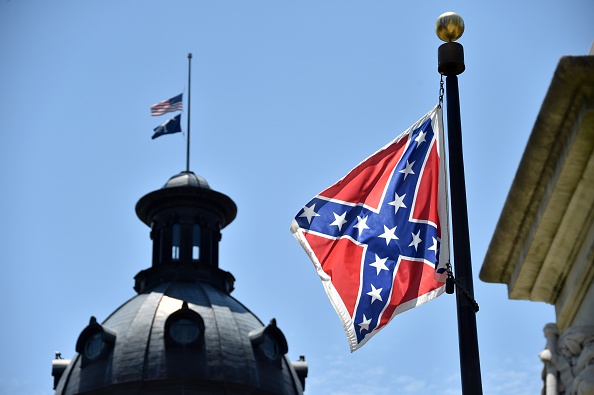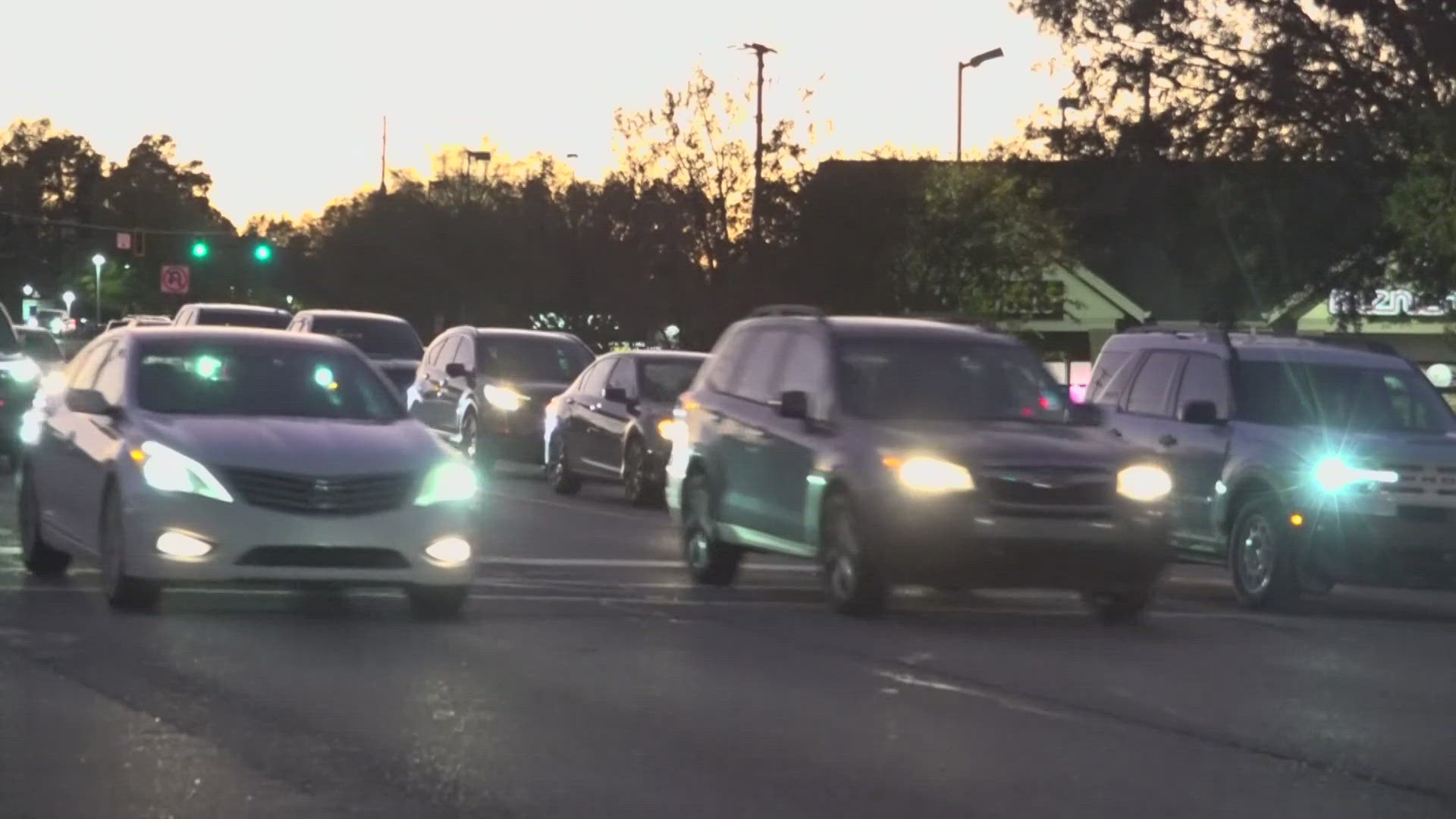For some, South Carolina residents, the Confederate flag hanging outside the State House represents their heritage.
For others, it is a sobering reminder of the state's dark history — marred by white supremacy and slavery.
The two conflicting narratives surrounding the Confederate flag have resurfaced as the tragic deaths of nine African Americans inside Emanuel African Methodist Episcopal Church in Charleston on Wednesday night reignited the debate over whether that flag should be there at all.
Police say Dylann Roof, a 21-year-old white male, killed them to create a "race war."
The debate also sheds light on the presence of the Old South culture where black residents say they still often feel like second-class citizens.
The flag first flew above the Statehouse in 1961 in response to campaigns for desegregation following the Brown v. Board of Education decision in which the Supreme Court ruled segregation in public schools was illegal. In 2000, the flag was moved to the front of the Statehouse after a compromise among state politicians.
State Rep. Carl Anderson, chair of the Legislative Black Caucus, told USA TODAY members of the Caucus will bring several bills to the next legislative session to address gun control, hate crimes and the removal of the Confederate flag. He said they hope to have bipartisan support.
The State's General Assembly would have to pass a bill in order for the flag to be removed from the grounds. Gov. Nikki Haley's office did not respond to a request for comment.
"It's time to really acknowledge and accept the fact that this symbol that represents the defense of slavery and the defense of segregation should not be displayed on the Statehouse ground," said Patricia Sullivan, a history professor at the University of South Carolina.
She said people need to know why the flag was flown in the first place to understand why its presence is problematic. Sullivan, like many other residents, believes it belongs in a museum.
Defenders of the flag say the symbol is misunderstood.
"(The flag) is a monument to a group of men who fought for their homeland to save their families from a group of military soldiers invading a sovereign state," said Dean Stevens, a member of South Carolina's division of Sons of Confederate Veterans.
Stevens, a 35-year-old resident of Columbia, said the flag does not represent slavery or white supremacy but rather efforts to preserve states' rights and the Constitution. He said the flag has become an "easy target for people to express their uneducated, politically-driven falsehoods."
"I can't change someone's opinion on the way they perceive falsehood," he said. "It's an icon that stirs emotion in people whether they know what they're talking about or not."
Still, many South Carolina residents, both blacks and whites, want to see the flag removed from the Statehouse grounds altogether. A petition on MoveOn.org calling for the removal of Confederate flags from "all government places" has more than 160,000 signatures.
The Supreme Court had something to say about the issue, as well: It ruled Thursday that states can block Confederate flag license plates.
Bakari Sellers, a former state representative, signed multiple fruitless bills during his tenure in the Legislature to have the flag removed from the Statehouse. He also advocated for it to be taken down during his unsuccessful run for lieutenant governor in 2014.
"The flag is morphing from a black and white issue to a generational issue," he said. "This is a generation of new thinkers who understand the divisiveness caused by that symbol and the hate that it breeds."


